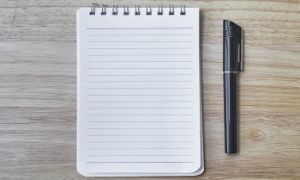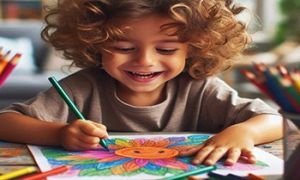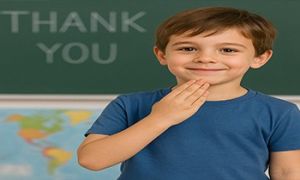The following article provides fun and engaging hands-on sustainability projects for kids. By engaging in these activities, kids not only build eco-friendly habits but also develop a strong foundation of life skills.
Outdoor & Nature-Based Projects
- Plant a Garden – Teach kids about growing food and caring for plants.
- Harvest Rainwater – Set up a simple rainwater collection system to water plants.
- Build a Worm Farm – Help kids understand composting and soil health.
- Make Seed Bombs – Mix wildflower seeds with soil and clay to encourage plant growth.
- Nature Walks & Treasure Hunts - Take them outside to collect leaves, flowers, and rocks for crafts or a nature journal.
- Bird Feeders - Make feeders using pine cones, peanut butter, and birdseed. Hang them outside and observe visiting birds.
- Bug Hotels - Use twigs, leaves, and cardboard tubes to create cozy homes for insects and teach kids about biodiversity.
- Mud Painting - Let kids mix mud and water to create eco-friendly paint for outdoor art projects.
- Mini Greenhouse - Use a clear plastic container to create a tiny greenhouse and let kids observe plant growth.
- Leaf Printing - Collect leaves and use them to make prints with natural paints.
- Worm Farm - Set up a small worm bin to teach kids about composting and soil health.
- Rock Painting - Decorate rocks with eco-friendly paint and place them in gardens or parks.
- Butterfly Garden - Plant flowers that attract butterflies and observe their life cycle.
Recycling & Upcycling Activities
- Create DIY Bird Feeders – Use recycled plastic bottles or milk cartons to make feeders.
- Make T-Shirt Tote Bags – Turn old shirts into reusable shopping bags.
- Upcycle Jar Lanterns – Decorate glass jars with paint or tissue paper for eco-friendly lighting.
- Sort & Label Recycling Bins – Teach kids how to properly separate recyclables.
- Recycled Art - Use old newspapers, magazines, and cardboard to create collages or sculptures, teaching kids about reusing materials.
- Sorting Recyclables - Set up bins for paper, plastic, and metal, and teach kids how to properly sort items.
- Homemade Paper - Kids can mash up old paper scraps and make new sheets, learning about resourcefulness.
- Cardboard Playhouses - Transform large boxes into castles, houses, or race cars for imaginative play.
- Bottle Cap Mosaics - Use colorful bottle caps to create beautiful artwork while emphasizing reuse.
- Egg Carton Seed Starters - Use egg cartons to start seedlings before transferring them to a garden.
- DIY Musical Instruments: Make shakers, drums, or guitars using recycled materials.
- Fabric Scrap Collages: Use old fabric pieces to create colorful artwork.
- Bottle Planters: Cut plastic bottles and turn them into small plant pots.
- Cardboard Tube Binoculars: Decorate toilet paper rolls to make pretend binoculars for nature exploration.
Energy & Water Conservation Projects
- Build a Solar Oven – Use a cardboard box and foil to cook food using sunlight.
- Water Pollution Experiment – Show kids how pollutants affect water quality.
- Energy-Saving Games – Teach kids how to reduce electricity use through fun challenges.
- Solar-Powered Toys - Introduce toys that run on solar energy to spark curiosity about renewable energy.
- Water Conservation Games - Teach kids to turn off taps when not in use and use watering cans instead of hoses.
- DIY Windmills - Create simple paper windmills to demonstrate wind power.
- Drip Irrigation Experiment - Use recycled bottles to show how plants can be watered efficiently.
- "Turn It Off" Challenge - Make it a fun game to switch off lights when leaving a room.
- Solar-Powered Night Light - Use a small solar panel to power a night light.
- Rainwater Collection: Set up a simple rainwater collection system for watering plants.
- Ice Cube Melting Experiment: Teach kids about temperature and water conservation by observing how ice melts.
- "Turn Off the Tap" Challenge: Make a game out of turning off the tap while brushing teeth.
- Wind-Powered Pinwheels: Create pinwheels to demonstrate wind energy.
What Skills Do Kids Learn From These Activities
These hands-on sustainability activities help toddlers and preschoolers develop a variety of essential skills, including:
Cognitive & Problem-Solving Skills
- Understanding basic environmental concepts like recycling and conservation.
- Observing and predicting natural changes, such as plant growth or decomposition.
- Learning cause and effect (e.g., turning off lights saves energy).
Fine & Gross Motor Skills
- Digging, planting, and watering in gardening activities improve coordination.
- Cutting, gluing, and assembling recycled art projects strengthen hand-eye coordination.
- Sorting recyclables teaches precision and control.
Social & Emotional Development
- Working together on projects promotes teamwork and patience.
- Caring for plants, animals, and nature fosters empathy and responsibility.
- Feeling accomplished when they create something reinforces confidence and creativity.
Communication & Language Skills
- Discussing materials, colors, and textures improves vocabulary.
- Asking questions about nature builds curiosity and conversation skills.
- Describing their creations enhances storytelling and self-expression.
Early STEM (Science, Technology, Engineering, Math) Knowledge
- Composting and gardening introduce kids to life cycles and ecosystems.
- DIY windmills and solar toys provide simple insights into renewable energy.
- Counting bottle caps or sorting recyclables strengthens early math skills.
Creativity & Imagination
- Upcycling old materials encourages thinking outside the box.
- Using natural elements for artwork develops artistic expression.
- Making playhouses from cardboard inspires imaginative role-playing.


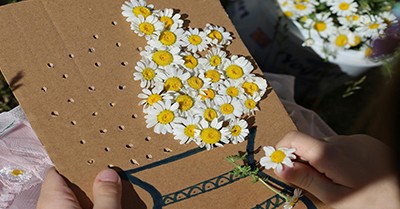
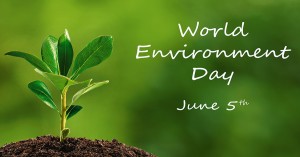
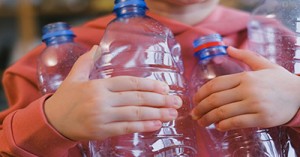
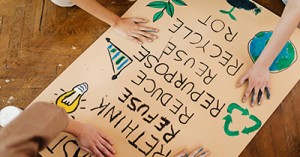
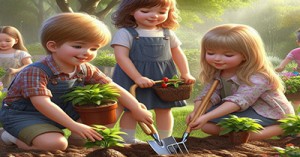
 Open ended questions cannot be responded to with one word answers such as yes or no. These types of questions enables a child to provide
Open ended questions cannot be responded to with one word answers such as yes or no. These types of questions enables a child to provide During your child’s preschool years, an important milestone begins to emerge. This is the development of pre-writing skills. Pre-writing skills are used to encourage, develop
During your child’s preschool years, an important milestone begins to emerge. This is the development of pre-writing skills. Pre-writing skills are used to encourage, develop Open ended materials enables children to play freely. They are objects that have no rules to follow, use or function. Raw materials that can be
Open ended materials enables children to play freely. They are objects that have no rules to follow, use or function. Raw materials that can be An Acknowledgment of the Country is a way of showing respect for the Traditional Owners and can be given by both non-Indigenous people and Aboriginal
An Acknowledgment of the Country is a way of showing respect for the Traditional Owners and can be given by both non-Indigenous people and Aboriginal Language plays an important role in a child’s development. It enables a child to communicate effectively with their family, learn at school, socialize with friends,
Language plays an important role in a child’s development. It enables a child to communicate effectively with their family, learn at school, socialize with friends, Like adults, children have to deal with their own stress in life. Moving house, starting a new school, preparing for a new sibling - these are
Like adults, children have to deal with their own stress in life. Moving house, starting a new school, preparing for a new sibling - these are Playdough is such a versatile material. It provides numerous benefits to children as they manipulate it, it is safe and soothing and provides children with
Playdough is such a versatile material. It provides numerous benefits to children as they manipulate it, it is safe and soothing and provides children with Teaching children about sustainability enables them to appreciate and respect the natural environment. Early childhood services can provide meaningful hand on learning experiences in order
Teaching children about sustainability enables them to appreciate and respect the natural environment. Early childhood services can provide meaningful hand on learning experiences in order Recycling is an important concept that teaches children to care for the environment. It encourages children to be responsible and show a growing appreciating for
Recycling is an important concept that teaches children to care for the environment. It encourages children to be responsible and show a growing appreciating for When children apply paint to paper, glue things together, or pound a lump of clay, they experiment with colour, shape design and texture.
When children apply paint to paper, glue things together, or pound a lump of clay, they experiment with colour, shape design and texture.
